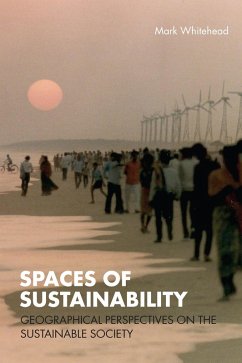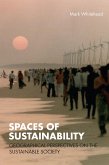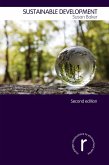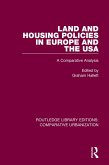Dieser Download kann aus rechtlichen Gründen nur mit Rechnungsadresse in A, B, BG, CY, CZ, D, DK, EW, E, FIN, F, GR, HR, H, IRL, I, LT, L, LR, M, NL, PL, P, R, S, SLO, SK ausgeliefert werden.
'Whitehead has envisioned Spaces of Sustainability as an introduction to the key debates and philosophical principles surrounding sustainable development and, in this regard, he succeeds admirably. In a concise fashion, he provides the reader with a well-informed and eminently readable overview of the key debates, theories and philosophical concepts, and policy initiatives in the realm of sustainable development. Furthermore, throughout the book he synthesizes a diverse collection of literature from both academia and the mass media and provides an eclectic and interesting array of real-world case studies drawn from a host of more and less developed countries [...] As a consequence, Spaces of Sustainability will serve as a valuable introduction for upper-level undergraduate students in geography, planning, public policy, and other social science disciplines in a wide variety of geographic settings' James, J. Biles, Indiana University, Growth and Development (November 2007)
'What is sustainability from a geographical point of view? Whitehead, in Spaces of Sustainability aims to answer this question through a review of the roots of the concept of sustainability...' - Giuseppe Pellegrini Masini, University of Glasgow (2008)
'The book is at its best when we encounter the realities of these sustainable societies - in the Body Shop, films, Mexico City and the everyday encounters of the author - and are given the analytical perspectives through which to understand the processes at hand. The detailed use of case-studies, the accessible text and the use of figures and text boxes all help with this endeavour. It deserves to have pride of place on reading lists across the social sciences and to be taken seriously by the research community.' - Harriet Bulkeley, University of Durham, UK 2008









